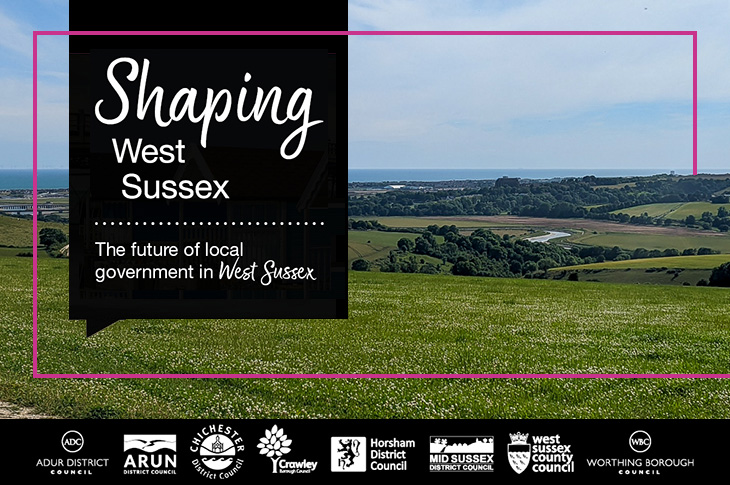Adur & Worthing Councils recommend two-unitary option for West Sussex
Released: Friday, 26 September 2025
We have submitted recommendations to the government to merge with Arun and Chichester as part of local government reorganisation (LGR) plans.
Two full council meetings were held this week for all councillors in Adur and Worthing to discuss the business case for LGR, which was developed collaboratively by all local authorities in West Sussex.
The shared business case presents an agreed evidence base created for all councils, with councillors also considering additional evidence on the benefits of a two-unitary model. Councillors and council officers have this week been considering the full range of analysis presented in the business case to determine their own preference for submission to the government.
A final decision on the preferred two-unitary option was made by our Joint Strategic Committee on Wednesday (24th September 2025) after the two full council meetings.
We believe that a two-unitary model that combines the current Adur, Arun, Chichester and Worthing footprints will be large enough to be efficient, and small enough for the new council to genuinely be connected to the communities it will serve.
In decisions taken across the county this week, all West Sussex district and borough councils have opted for the same model, with Chichester and Arun in agreement with a coastal/downs authority, and Crawley, Mid Sussex and Horsham recommending a central Sussex authority.
Additional benefits of a two-unitary model over a single unitary include enhanced local democracy with a better ratio of councillors to residents and greater representation for the West Sussex population at the new mayoral combined county authority. Localised and integrated public services in crucial areas like social care, housing and prevention would also be delivered, and the councils would be better aligned to the specific strengths of the county's two distinct economic zones.
The recommendations were also informed by public feedback from the Shaping West Sussex survey, which demonstrated strong support in favour of two unitaries that keep Adur and Worthing together, as well as evidence from our own public engagement exercise.
In July, councils across West Sussex launched the Shaping West Sussex survey to engage residents, stakeholders, members and staff on three unitary model options that were identified as viable. Over 9,300 people completed the survey, with 62% preferring a two-unitary option.
We undertook our own engagement exercise in May 2025 called Thriving Together. Using digital engagement, neighbourhood conversations and deliberative events, Thriving Together created welcoming and creative ways for people to share ideas on devolution and LGR as well as the future of the places they live.
The process produced a People's Vision with seven aims and 21 actions covering priorities that include keeping decisions local, investing in community and culture, creating better places, and focusing on young people.
At the council meetings, councillors also unanimously agreed to the formation of a new cross-party working group to explore how local democracy can be best delivered in a new unitary authority.
Now all business cases have been submitted, the government will undertake its own consultation on LGR in Sussex. For West Sussex, this is expected to run from November 2025 to January 2026. A ministerial decision on the future shape of local government in West Sussex is anticipated in Spring 2026 and will take effect from April 2028.
Adur District Council leader, Cllr Jeremy Gardner, said:
“We are grateful to everyone who took part in the public engagement exercises. Our Thriving Together work showed the importance of ensuring that our communities and partners have a real say in shaping the future of the places we live, work or study.”
Worthing Borough Council leader, Cllr Sophie Cox, said:
“We believe that a two-unitary model is best placed to serve the needs of Worthing residents as well as present new economic opportunities and better ways of working. While councils may have different views on their preferred options, we are committed to continued collaboration to get the best outcome for residents and wider stakeholders and to work together to implement whatever the government's chosen solution is.”
The priorities developed as part of our Thriving Together engagement will be explored at an in-person workshop in October. To find out more, see:
To read the business case in full please see:

(PR25-072)
Page last updated: 11 February 2026

